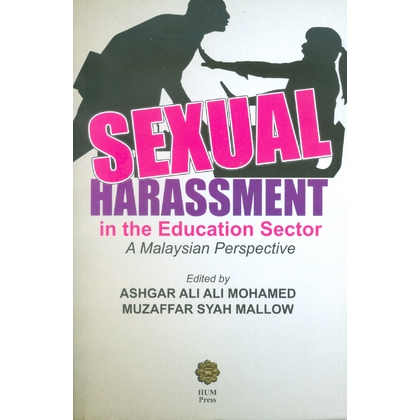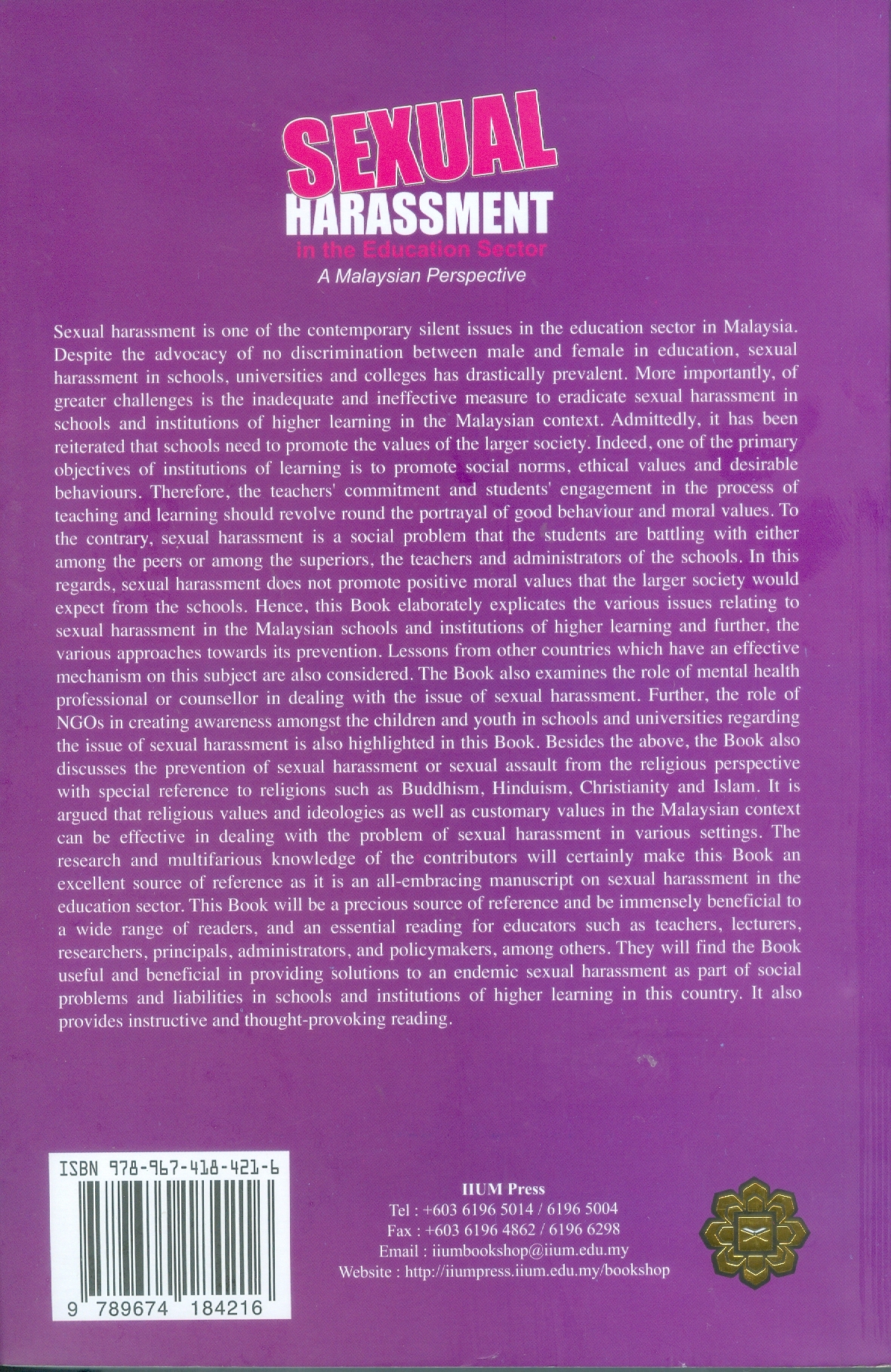Sexual Harassment in the Education Sector: A Malaysian Perspective
Editors: Ashgar Ali Ali Mohamed & Muzaffar Syah Mallow
Publisher: IIUM Press
ISBN: 9789674184216
Weight: 0.45kg
Pages: 344pp
Year: 2016
Price: RM69
Sexual harassment is one of the contemporary silent issues in the education sector in Malaysia. Despite the advocacy of no discrimination between males and females in education, sexual harassment in schools, universities and colleges has been drastically prevalent. More importantly, of greater challenges is the inadequate and ineffective measure to eradicate sexual harassment in schools and institutions of higher learning in the Malaysian context. Admittedly, it has been reiterated that schools need to promote the values of the larger society. Indeed, one of the primary objectives of institutions of learning is to promote social norms, ethical values and desirable behaviours. Therefore, the teachers' commitment and students' engagement in the process of teaching and learning should revolve around the portrayal of good behaviour and moral values. On the contrary, sexual harassment is a social problem that the students are battling with either among their peers or among the superiors, the teachers and administrators of the schools. In this regard, sexual harassment does not promote the positive moral values that the larger society would expect from the schools. Hence, this Book elaborately explicates the various issues relating to sexual harassment in the Malaysian schools and institutions of higher learning and further, the various approaches towards its prevention. Lessons from other countries which have an effective mechanism on this subject are also considered. The book also examines the role of mental health professionals or counsellors in dealing with the issue of sexual harassment. Further, the role of NGOs in creating awareness amongst the children and youth in schools and universities regarding the issue of sexual harassment is also highlighted in this Book. Besides the above, the Book also discusses the prevention of sexual harassment or sexual assault from the religious perspective with special reference to religions such as Buddhism, Hinduism, Christianity and Islam. It is argued that religious values and ideologies as well as customary values in the Malaysian context can be effective in dealing with the problem of sexual harassment in various settings. The research and multifarious knowledge of the contributors will certainly make this Book an excellent source of reference as it is an all-embracing manuscript on sexual harassment in the education sector. This book will be a precious source of reference and be immensely beneficial to a wide range of readers, and an essential reading for educators such as teachers, lecturers, researchers, principals, administrators, and policymakers, among others. They will find the Book useful and beneficial in providing solutions to endemic sexual harassment as part of social problems and liabilities in schools and institutions of higher learning in this country. It also provides instructive and thought-provoking reading.











